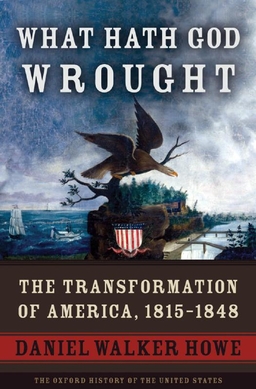
Jared Mason Diamond is an American scientist, historian, and author. In 1985 he received a MacArthur Genius Grant, and he has written hundreds of scientific and popular articles and books. His best known is Guns, Germs, and Steel (1997), which received multiple awards including the 1998 Pulitzer Prize for general non-fiction. In 2005, Diamond was ranked ninth on a poll by Prospect and Foreign Policy of the world's top 100 public intellectuals.

Judea Pearl is an Israeli-American computer scientist and philosopher, best known for championing the probabilistic approach to artificial intelligence and the development of Bayesian networks. He is also credited for developing a theory of causal and counterfactual inference based on structural models. In 2011, the Association for Computing Machinery (ACM) awarded Pearl with the Turing Award, the highest distinction in computer science, "for fundamental contributions to artificial intelligence through the development of a calculus for probabilistic and causal reasoning". He is the author of several books, including the technical Causality: Models, Reasoning and Inference, and The Book of Why, a book on causality aimed at the general public.
Robert A. Dallek is an American historian specializing in the presidents of the United States, including Franklin D. Roosevelt, John F. Kennedy, Lyndon B. Johnson, and Richard Nixon.

David Levering Lewis is an American historian, a Julius Silver University Professor, and professor emeritus of history at New York University. He is twice winner of the Pulitzer Prize for Biography or Autobiography, for part one and part two of his biography of W. E. B. Du Bois. He is the first author to win Pulitzer Prizes for biography for two successive volumes on the same subject.

David Brion Davis was an American intellectual and cultural historian, and a leading authority on slavery and abolition in the Western world. He was a Sterling Professor of History at Yale University, and founder and director of Yale's Gilder Lehrman Center for the Study of Slavery, Resistance, and Abolition.
Caroline Walker Bynum, FBA is a Medieval scholar from the United States. She is a University Professor emerita at Columbia University and Professor emerita of Western Medieval History at the Institute for Advanced Study in Princeton, New Jersey. She was the first woman to be appointed University Professor at Columbia. She is former Dean of Columbia's School of General Studies, served as president of the American Historical Association in 1996, and President of the Medieval Academy of America in 1997–1998.

David S. Eisenberg is an American biochemist and biophysicist best known for his contributions to structural biology and computational molecular biology. He has been a professor at the University of California, Los Angeles since the early 1970s and was director of the UCLA-DOE Institute for Genomics & Proteomics, as well as a member of the California NanoSystems Institute (CNSI) at UCLA.
Arthur Jacob Marder was an American historian specializing in British naval history in the period 1880–1945.

Frank Moore Cross Jr. was the Hancock Professor of Hebrew and Other Oriental Languages at Harvard University, notable for his work in the interpretation of the Dead Sea Scrolls, his 1973 magnum opusCanaanite Myth and Hebrew Epic, and his work in Northwest Semitic epigraphy. Many of his essays on the latter topic have since been collected in Leaves from an Epigrapher's Notebook.
Charles Ray Ritcheson was an American historian, diplomat, and university administrator.

Charles Howard McIlwain was an American historian and political scientist. He won the Pulitzer Prize for History in 1924. He was educated at Princeton University and Harvard University and taught at both institutions, as well as the University of Oxford, Miami University, and Bowdoin College. Though he trained as a lawyer, his career was mostly academic, devoted to constitutional history. He was a member of several learned societies and served as president of the American Historical Association in 1935–1936.

What Hath God Wrought: The Transformation of America, 1815–1848 is a nonfiction book about the history of the United States written by historian Daniel Walker Howe. Published in 2007 as part of the Oxford History of the United States series, the book offers a synthesis history of the early-nineteenth-century United States in a braided narrative that interweaves accounts of national politics, new communication technologies, emergent religions, and mass reform movements. The winner of multiple book prizes, including the 2008 Pulitzer Prize for History, reviewers widely praised What Hath God Wrought. Historian Richard Carwardine said it "lays powerful claim to being the best work ever written on this period of the American past."
Robert Pierce Forbes is an American historian specializing in the politics and culture of the early American Republic, and the impact of slavery on the development of American institutions and modern society.
Robert A. Hill is a Jamaican historian and academic who moved to the United States in the 1970s. He is Professor Emeritus of History and Research Professor at the University of California, Los Angeles (UCLA), and Visiting Fellow at The Sir Arthur Lewis Institute of Social and Economic Studies (SALISES), University of the West Indies at Mona, Jamaica.
Christopher S. Wood is an American art historian. He is a professor in the Department of German at New York University.
Jeffrey Conrad Stewart is an American Professor of Black Studies at the University of California, Santa Barbara. He won the 2018 National Book Award for Nonfiction and the 2019 Pulitzer Prize for Biography for his book The New Negro: The Life of Alain Locke, described as "a panoramic view of the personal trials and artistic triumphs of the father of the Harlem Renaissance and the movement he inspired".







